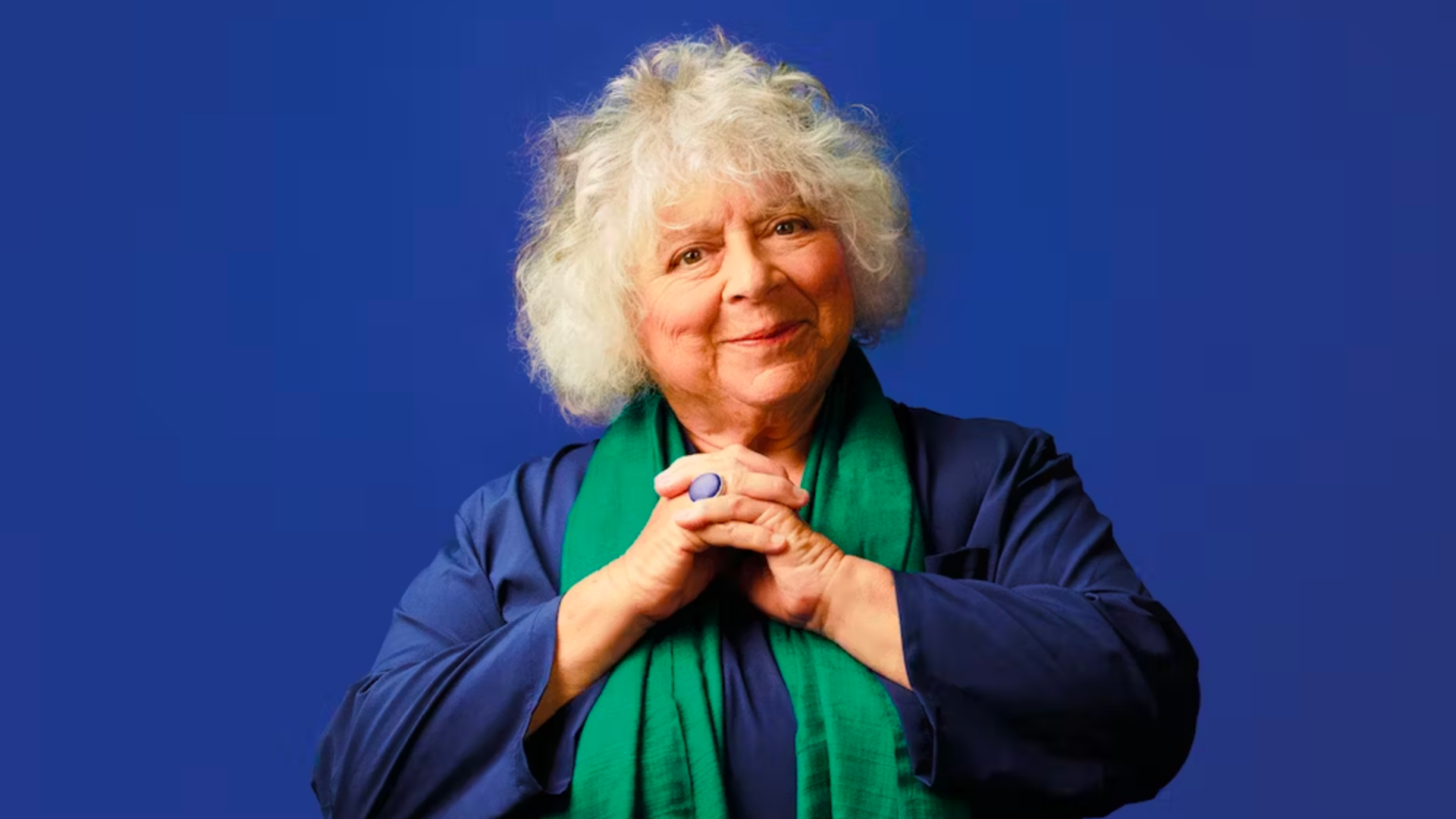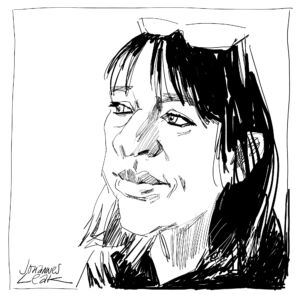How swearing became twee
Excessive cussing has become a marker of dreary, middle-class conformism.

Want to read spiked ad-free? Become a spiked supporter.
When I was a girl, I thought swearing was big and clever. Now I’m an old lady, I find it weedy and dumb. It’s gone from being an outrageous way to bait the establishment – as it was when American comic Lenny Bruce got jailed for it in the 1960s – to being a telltale sign of someone who has nothing to say yet craves attention.
The swearers I really hate are the cussing conformists. These are those wealthy establishment entertainers, all of whom hold the same views on everything from Palestine to lady penises to the folly of Brexit, who cuss a blue streak at the drop of a hat. It started when Hugh Grant said ‘Fuck’ repeatedly at the start of Four Weddings and a Funeral in 1994 and has ended up embodied by the ghastly Miriam Margolyes, who believes herself to be ‘outrageous’ for ‘saying the unsayable’, despite holding the same views as all other actors. Hearing well-born thespians pepper their language with four-letter words to add a frisson to their dreary personas makes me want to disown swearing completely and stick to the odd ‘blazes’ or ‘Ruddy Nora!’ instead.
My newly minted loathing of what my sainted mum called ‘language’ was crystallised recently when I read that last year the UK Advertising Standards Authority rejected two complaints about an advertisement for Dawn French’s comedy show, Dawn French is a Huge Twat. The ASA reasoned that ‘the use of the word would be understood by readers to be self-deprecating and tongue-in-cheek, and it was not, for example, used in a sexual context’.
Now, I don’t think for one minute that Dawn French really considers herself a huge twat. Nor do I think that her most recent book, The Twat Files: A Hilarious Sort-of Memoir of Mistakes, Mishaps and Mess-ups, is intended to be any sort of genuine mea culpa for inflicting her oversized brand of smug self-congratulation on the world for the past 40 years. (This one-star Amazon review says it all: ‘Not very funny – how many times can you laugh at the same word?’) On the contrary, I’d wager that she thinks she’s a highly productive, creative and attractive person and very good at what she does. After all, no one carries on for four decades doing something they reckon they’re lousy at. No, it’s a decoying self-diss, designed to draw the eye away from her mediocrity.
It’s not being narrow-minded that makes me feel distaste for this sort of language. On the contrary, it’s having lived a life transgressing all sorts of decencies that makes me feel contempt that the whole gorgeous business of outraging society has now been replaced with just endless curse words. It reminds me of the idiocy parodied so well in the old Flanders and Swann song about ‘artistic’ swearing:
‘Ma’s out, Pa’s out, let’s talk rude
Pee, po, belly, bum, drawers!
Dance in the garden in the nude
Pee, po, belly, bum drawers!
Let’s write rude words all down our street
Stick out our tongues at the people we meet
Let’s have an intellectual treat!
Pee, po, belly, bum, drawers.’
Now we have talking bums and ‘happy vaginas’ featuring in commercials. These things are meant to signal a mature and open society. But for me, the acceptance – no, encouragement – of this level of inanity is yet another symptom of our infantilisation. It’s the same thing that leads weather reporters to urge us to wrap up warm and stay hydrated.
I’m not in the least a nostalgic person, but there’s an appeal in the old attitude to cursing, which respected that self-imposed boundaries make for good communities – in contrast with today where rules are imposed from above, by the BBC and the ECHR. Working-class men like my father were notorious for never swearing in front of women and children.
I still remember with some fondness my mum slapping me for saying ‘Fuck’ when I was 10. That didn’t stop me, though! Imagine how she felt when my thoroughly dirty book, Ambition, was published when I was in my twenties. I did warn her not to read it. I even tried to bribe her: ‘Mother, if you promise not to read it, I’ll pay for you and dad to go to Benidorm this year.’ She stared back at me like the mutinous teenager I had once been. ‘How will you know? I might lie, and read it, and still let you pay!’, she said. ‘Mother. I will know’, I replied, ‘Because you won’t be able to look me in the eye after you’ve read it’. When I went home after its publication, she lasted 10 minutes before cornering me in the kitchen and wailing, ‘O, girl – ’OW COULD YOU?’.
But it turns out that mother really did know best when she scolded us for turning the air blue with our childishly profane piping. Swearing once had a useful function. It allowed adults to let off steam verbally, rather than breaking things or punching people. Indeed, there are psychological studies that argue profanity can make people feel better. A 2009 study at Keele University made its subjects plunge their hands into freezing water, once while cussing and once while not. Not only were swearers able to keep their hands underwater for longer, the perception of pain was reduced by as much as a third. However, subsequent tests found that this worked best for those who generally don’t swear, indicating that if you cuss too much, you won’t feel the benefit, as your mum used to say about wearing a coat indoors.
Ask yourself honestly, however liberal you feel about public profanity, if there were two empty seats on a bus, and one was next to a person speaking loudly into their mobile phone, and the other next to someone swearing equally loudly into theirs, would you really not be biased against the swearer?
Society appears to have become less civil as acceptance of swearing has increased. Maybe it’s part of the 1982 broken-windows theory of societal breakdown. I have played my own part in such coarsening of the community. Several years ago, I drove a young family from the next table in a restaurant as I was swearing so loudly and frequently. I haven’t ever done it again. I felt ashamed of myself, and I don’t feel shame very often.
Of course, as a free-speech absolutist I believe that people should say what they like. But I don’t believe it’s a coincidence that swearing has become acceptable at a time when the words we really want to speak have never been more policed. Today, the actual police will caution women who say that men cannot be lesbians and women cannot have penises. It’s like we’re being allowed to swear as a reward for lying – and to my mind, that’s completely effing unacceptable.
Julie Burchill is a spiked columnist. Her book, Welcome To The Woke Trials: How #Identity Killed Progressive Politics, is published by Academica Press.
Picture by: Paul Stuart.
Who funds spiked? You do
We are funded by you. And in this era of cancel culture and advertiser boycotts, we rely on your donations more than ever. Seventy per cent of our revenue comes from our readers’ donations – the vast majority giving just £5 per month. If you make a regular donation – of £5 a month or £50 a year – you can become a and enjoy:
–Ad-free reading
–Exclusive events
–Access to our comments section
It’s the best way to keep spiked going – and growing. Thank you!











Comments
Want to join the conversation?
Only spiked supporters and patrons, who donate regularly to us, can comment on our articles.